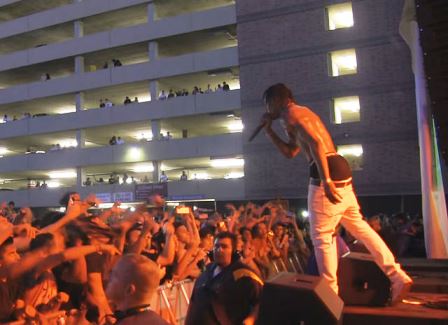When Ghostwriter, an unknown musical composer, released an unauthorised single earlier this year that employed artificial intelligence vocal effects to resemble pop superstars Drake and the Weeknd, the backlash was rapid and far-reaching.
“Heart on My Sleeve,” a largely original music, was quickly deleted from official streaming providers, despite experts admitting that its usage of A.I. fell into a fast increasing legal grey area. While the big record companies tried to preserve their intellectual property and prepare for future disruptions, the music spread on social media, gaining millions of plays and inspiring a wave of equally unique creations.
Ghostwriter remained mute — at least in public — throughout the aftermath.
However, behind the scenes, the mysterious act and its crew were courting the same industry leaders that “Heart on My Sleeve” had frightened. In the months following, individuals behind the initiative have met with record labels, tech executives, music platforms, and musicians to explore how to effectively leverage the potential of artificial intelligence, including a virtual round-table meeting this summer organised by the Recording Academy, the organisation behind the Grammy Awards.
“I knew right away as soon as I heard that record that it was going to be something that we had to grapple with from an Academy standpoint, but also from a music community and industry standpoint,” Harvey Mason Jr., the Recording Academy’s chief executive, said in an interview. “When you see A.I. involved in something so creative and cool, relevant and current, it immediately makes you wonder, ‘OK, where is this going?’” How will this influence creativity? ‘What are the commercial implications for monetization?’”
Mason said that he contacted Ghostwriter personally over social media after hearing “Heart on My Sleeve.” He went to the meeting in character, even adopting a distorted voice, he said.
Ghostwriter reappeared with a new single, “Whiplash,” on Tuesday, this time employing A.I. voice filters to sound like Travis Scott and 21 Savage and give a message to the industry: “Me and Writer raise a toast,” the A.I. version of 21 Savage raps. “Trying to shadowban my boy/but you can’t kill a ghost.”
The music, which was shared on social media sites such as TikTok and X, previously known as Twitter, rather than Spotify and other legitimate streaming services, was accompanied with a message urging Scott and 21 Savage to cooperate on an official release. “The future of music has arrived.” “Artists can now let their voice work for them without lifting a finger,” Ghostwriter stated. “If you’re willing to release it, I’ll clearly label it as A.I. and direct royalties to you.” In any case, respect.”
Scott and 21 Savage representatives did not immediately reply to a request for comment.
A Ghostwriter official, who requested anonymity in order not to reveal those behind the project — noting that much of its marketing effectiveness stems from its mystery — verified that “Whiplash,” like “Heart on My Sleeve,” was a human-written and recorded original song. Before integrating A.I. components, Ghostwriter sought to emulate the established stars’ substance, delivery, tone, and phrasing.
They also said that the Ghostwriter team had just nominated “Heart on My Sleeve” for two Grammy Awards at next year’s ceremony: best rap song and song of the year, both of which are given to the composers of a song.
“As far as the creative side, it’s absolutely eligible because it was written by a human,” Mason of the Recording Academy said.
He also stated that the Academy would consider whether the song was commercially available, as Grammy rules require a track to have “general distribution,” which is defined as “the broad release of a recording, available nationwide via brick-and-mortar stores, third-party online retailers, and/or streaming services.”
A spokesperson for Ghostwriter said that they were aware of the commercial availability requirement.
In a statement, the Ghostwriter team said it aimed to raise awareness about the creative and commercial potential of A.I. voice filters, comparing the technology to the early days of hip-hop sampling or user-generated material on YouTube. It gave instances such as being able to conduct karaoke in the voice of one’s favourite musician; at-home makers creating original music a la fan fiction; and artists’ estates employing the filters for posthumous original releases.
The team said it aimed to engage with stakeholders to establish a platform that assures artists who choose to licence their voice can decide how it is used and be compensated when it is. It would be guided by Mason, the Recording Academy, and its industry partners.
“Ghostwriter has really played an important role here to bring awareness and attention,” Mason added. “We know A.I. will play a role in our business.” We can’t pretend to ignore it and attempt to outlaw it.”
“I’m not afraid of A.I.,” he continued, “but I do believe that work needs to be done to ensure that things are in place to protect the creative community.”
More in Entertainment: https://buzzing.today/entertainment/
Photo Credits: https://commons.wikimedia.org/
